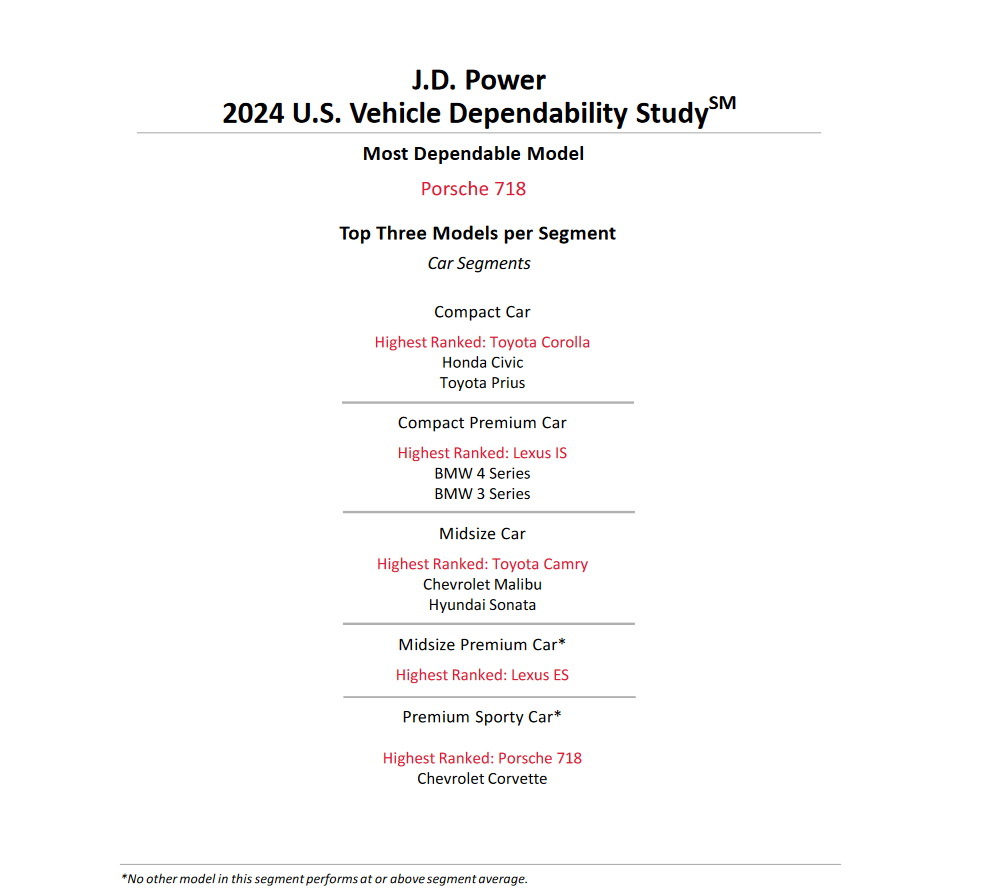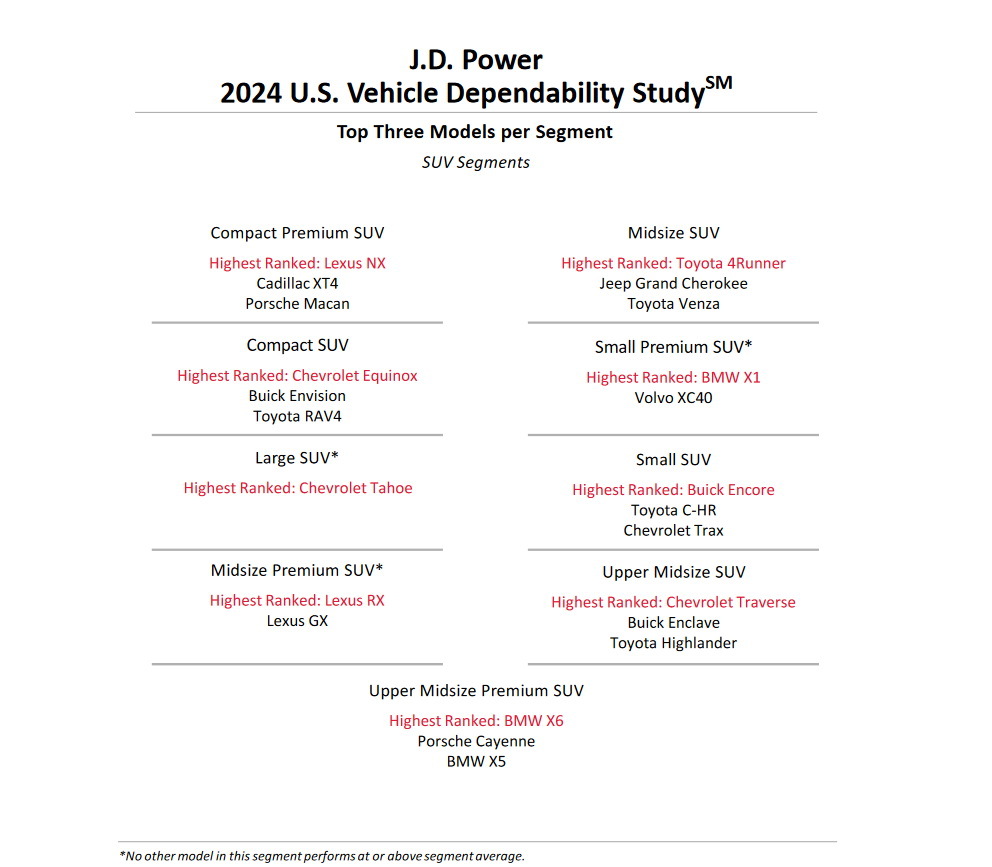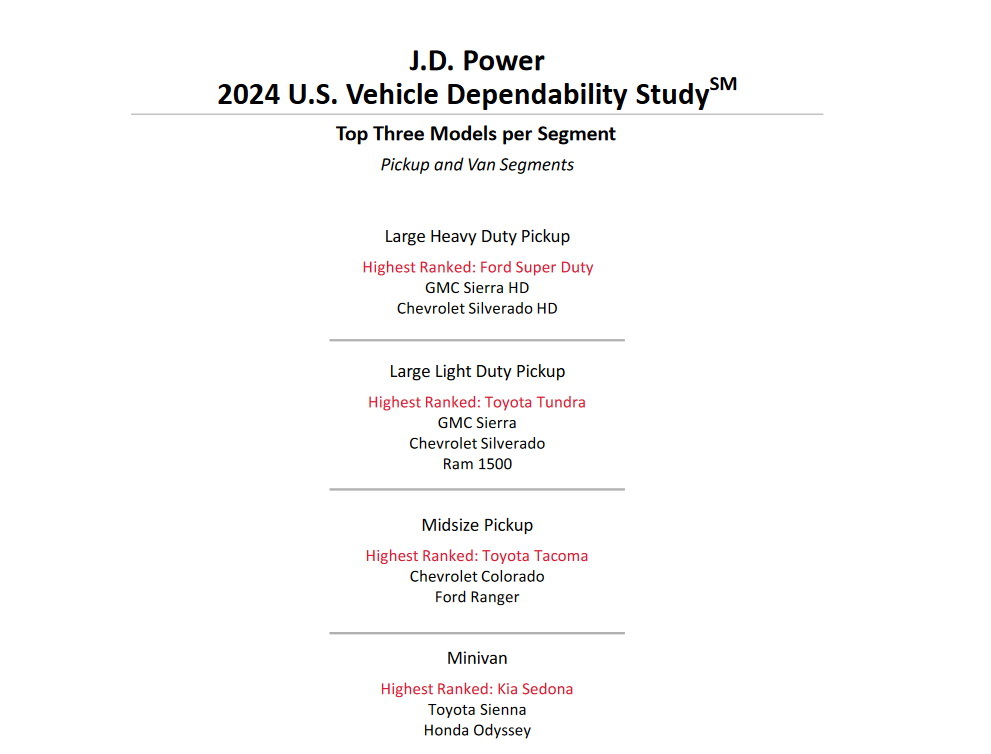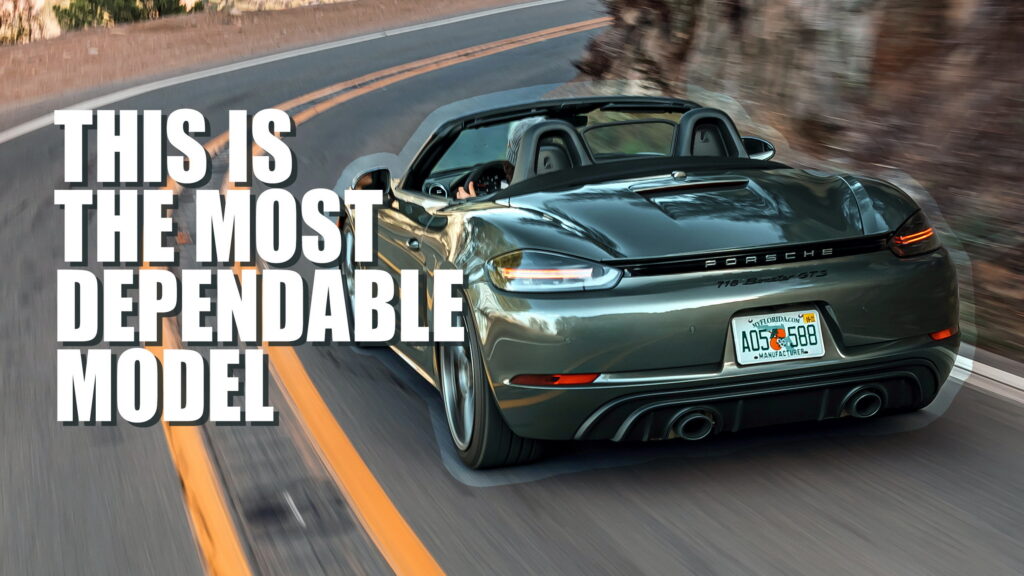The latest dependability study results from J.D. Power make for grim reading if you’re in the market for a new car. The longer-term reliability of two thirds of all brands has decreased, and industry-wide, drivers are experiencing 190 problems per 100 vehicles.
That’s 4 more problems per 100 vehicles than the study found 12 months ago. Worse still, the rate at which problems present themselves has increased. A year ago, 12 percent of people experienced an issue in the first 90 days to three years of ownership. Now, the rate is up to 17 percent.
It should be noted here that JD Power’s 2024 U.S. Vehicle Dependability Study collected feedback from 30,595 original owners of 2021 model-year vehicles after three years of ownership. This study took place from August through November 2023.
Read: Love It Or Hate It? Rivian Tops, Infiniti Flops In CR’s Owner Satisfaction Study
Fortunately, according to J.D. Power’s senior director of auto benchmarking, Frank Hanley, there may be mitigating factors. This drop in dependability can likely be attributed to the pandemic, the pressures it put on manufacturing, and its impacts on the automotive market. That suggests that it could get better as supply lines normalize, but it still leaves automakers with some important considerations.
“The average age of vehicles on American roads today is approximately 12 years, which underscores the importance of building a vehicle designed to stand the test of time,” said Hanley. “Automakers must ensure new vehicle technology introduced today will still meet the customer’s needs years down the road.”
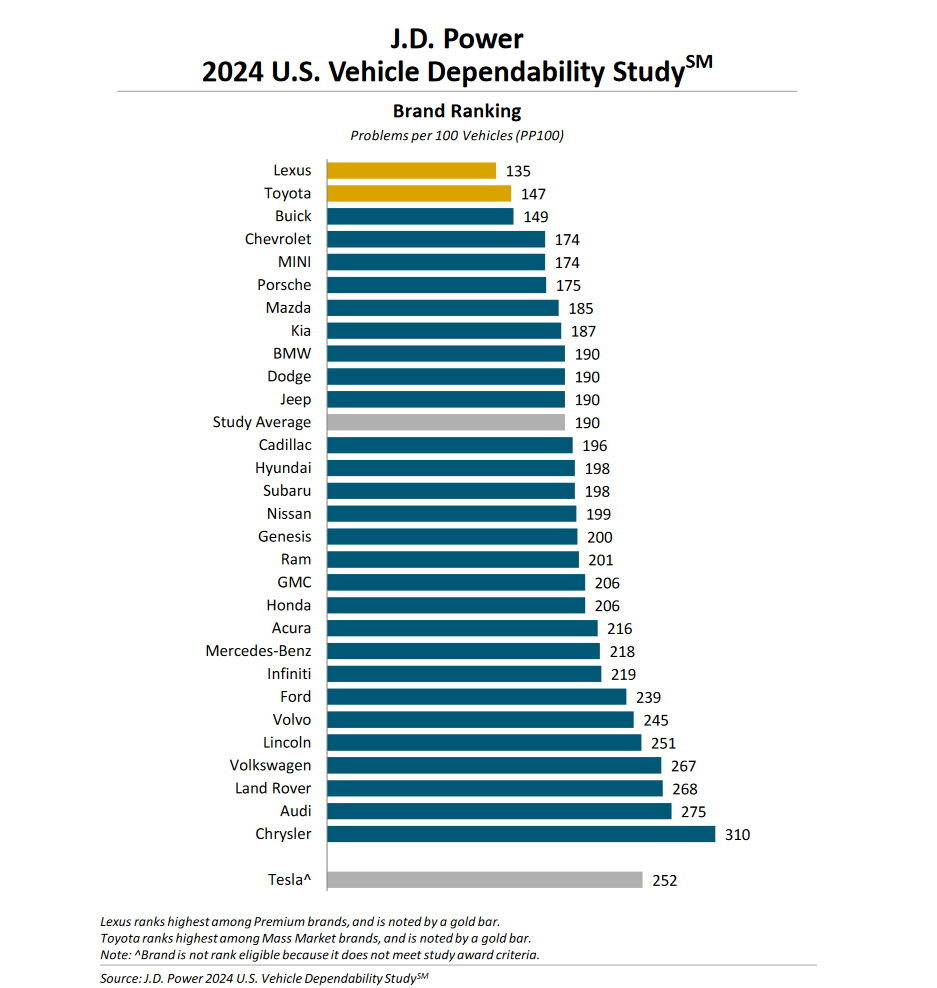
The area that has proven to be the most problematic for automakers is in-vehicle tech. Owners experience 49.1 problems per 100 vehicles as a result of their infotainment systems. That’s roughly twice as many problems as the next most problematic area, vehicle exteriors. Connecting to Apple CarPlay and Android Auto is the top problem in this area, and a vehicle’s built-in voice recognition system is close behind in second place.
Since high-tech features are some of the most problematic, it may not surprise you to learn that electric vehicles are the ones that owners complain about the most. EVs experience 256 problems per 100 vehicles, plug-in hybrids 216, hybrids 191, and internal combustion vehicles experience just 187 problems.
High-tech issues aren’t the only ones for EVs, though. J.D. Power finds that 39 percent of EV owners say they have replaced their tires after three years of ownership. For owners of ICE vehicles, just 20 percent of owners have had to change their tires.
Reliability By Brand
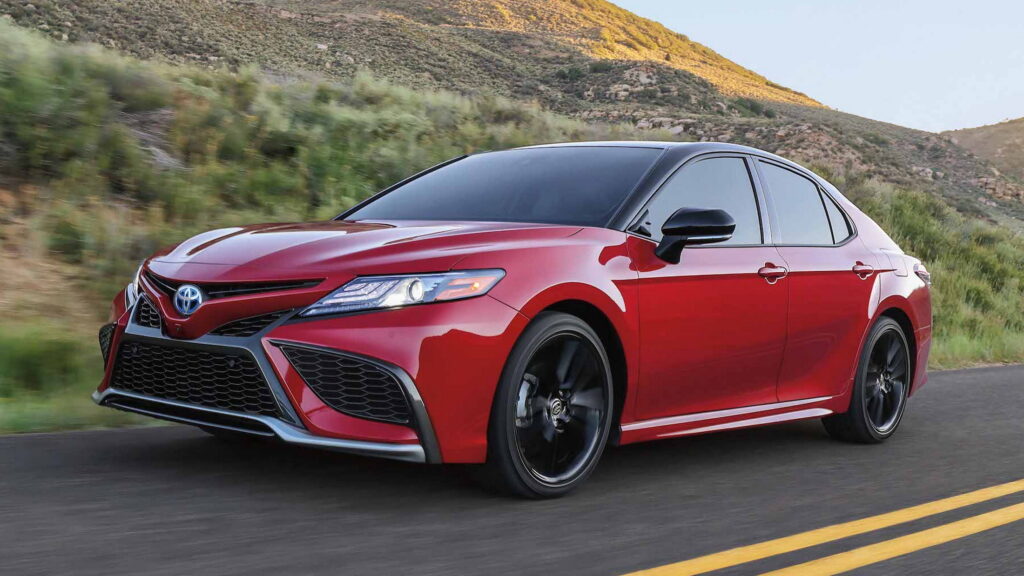
So which brand does it best? The answer is easy: Toyota. The automaker’s central brand leads the mass market segment with just 147 problems per 100 vehicles, while its premium brand, Lexus, leads the luxury segment and the overall industry for a second year in a row, with just 135 problems per 100 vehicles.
Unsurprisingly, the company earns the most reliability awards by model. In fact, Toyota’s nine dependability awards is the most any brand has won in a single study since 2017, when it won 10 awards.
On the other end of the table we find Chrysler, with 310 problems per 100 vehicles, whereas Tesla is not included in the study as, according to J.D. Power, it does not meet the study’s award criteria. Nevertheless, it is estimated to get a score of 252 issues per 100 vehicles, which is way worse than the study average of 190 and would put it in the bottom five brands.
Most Dependable Models
When it comes to individual models, the top spot overall goes not to a Toyota or Lexus, or even a mainstream car for that matter, but to the Porsche 718 sports car series, comprising the Boxster roadster and Cayman coupe. You can see details below for each category, but some of the highest-ranking models in their class include several Toyotas like the Corolla and Camry, the Lexus IS, BMW X6, and the Ford Super Duty.
